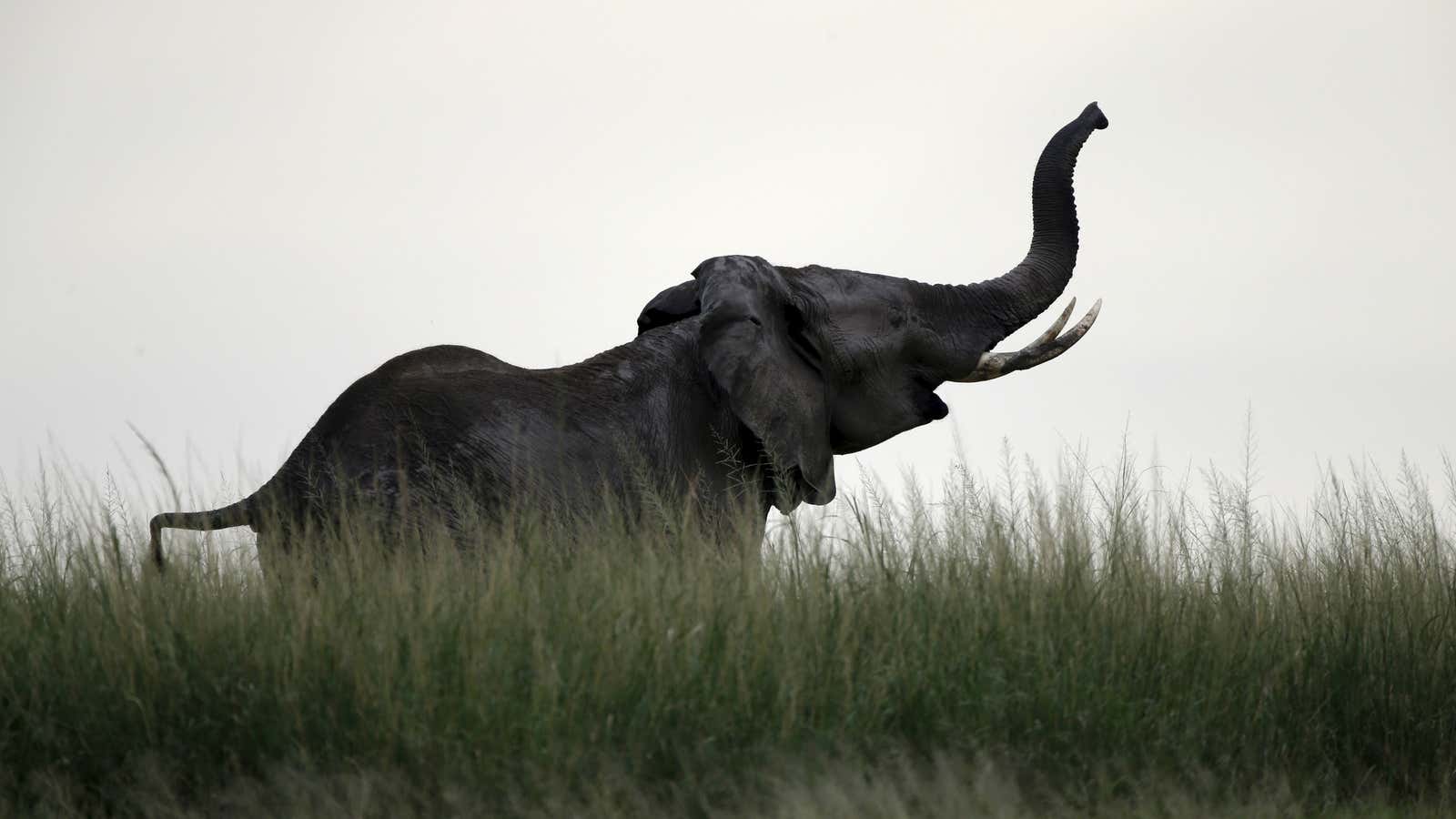African elephants still face a great risk of poaching despite global efforts to end the scourge, says a new report.
Even though the proportion of illegally killed elephants has dropped for a fourth straight year, according to the Convention on the Trade in Endangered Species, it still remains above the normal growth rate as elephant killing continues to outpace population growth. Since 2011, CITES has analyzed the levels of poaching through its Monitoring the Illegal Killing of Elephants (MIKE) program in sample sites across 30 countries in Africa.
The report found the proportion of illegally killed elephants is highest in Central and Western Africa. Even though the levels of poaching in Southern and East Africa recorded the least levels of poaching last year, the report noted a worrying 23% increase in poaching in Kruger, South Africa, which it described as “one of the most secure sites” for elephants.
Elephant poaching is driven mainly by an illegal, but lucrative ivory trade business. With big markets in Asia and Europe, ivory has grown to become a coveted item despite global campaigns to stop poaching.
Ginette Hemley, senior vice president of Wildlife Conservation, says governments in major illegal ivory markets are taking the lead in the fight against poaching. “We’ve seen significant global momentum toward ending poaching and the ivory trade, with China, Hong Kong, and the United States recently pledging to close their domestic ivory markets,” she said in a statement. But according to Hemley, action from governments alone will not be enough. “Reducing the killing calls for action across the entire trade chain, including putting an end to the poaching, the trafficking, and most critically, the consumer demand that’s driving wildlife crime.” The illegal wildlife trade business is estimated to be worth around $10 billion annually. (pdf)
Poaching in general has been a concern for wildlife conservation in Africa. To solve the problem, various countries are taking drastic measures. Kenya, for example, has turned to snipers to protect its rapidly diminishing rhino population. For its part, Zimbabwe has controversially chosen to export its elephants to China as it says it can only cope with half of its current elephant population. Despite concerns of animal rights groups, Zimbabwe’s elephant trade with China has grown into a million dollar business.
